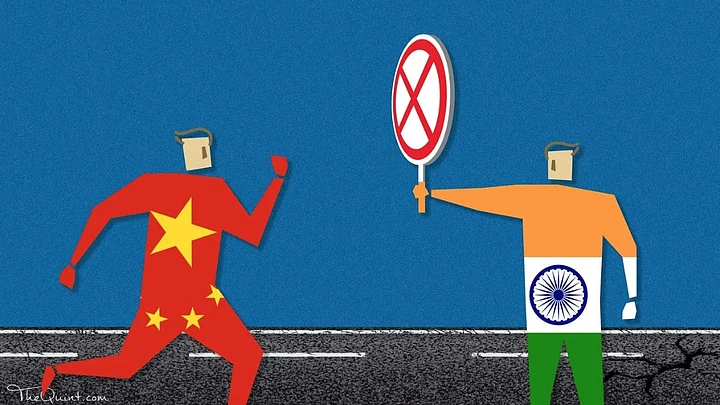As part of the attempts to cut import dependence, and encourage production and demand for locally made goods, the government is considering import restrictions on more than 350 items, including electronic goods, toys, furniture, and textiles, reported The Business Standard.
According to the report, the government is looking at introducing an import-monitoring system for some items and mandatory licensing requirements for other products. The strategy for the same is being formulated by the ministries of finance; commerce; micro, small, and medium enterprises (MSMEs); and the NITI Aayog.
Items such as processed food, textiles, leather, toys, and furniture are being considered for import restriction. Drugs and items like television, air-conditioners, and refrigerators are also on the list.
Decoupling Trade Ties to Hurt Both, Says Chinese Ambassador
Chinese Ambassador to India Sun Weidong, on Friday 11 July said that China and India should to find a fair and reasonable solution mutually acceptable through equal consultation and peaceful negotiation.
He acknowledged that there are calls for ‘decoupling’ of China-India economic and trade relations, with an attempt to completely exclude ‘Made in China’. He said that such a decision would affect Indian employees and consumers as much.
"Any self-protection, non-tariff barriers and restrictive measures against China are unfair to Chinese enterprises, unfair to Indian employees who lost their jobs as a result, and unfair to Indian consumers who cannot get access to the products and services they deserve. It will only harm others without benefit to oneself, and it will eventually hurt oneself as well," he said.
People’s Bank of China Drops Shares in HDFC
Meanwhile, Bloomberg reports that China's central bank has sold some of its stake in Housing Development Finance Corp (HDFC). According to a report, The People's Bank of China (PBOC) has dropped off the list of investors holding at least a 1 per cent stake in the company as of end-June. However, it is unclear whether the Chinese central bank continues to hold stakes in the mortgage lender or not.
According to The Hindu Business Line, The PBOC may have sold at least a part of its shares in the open market.
(At The Quint, we question everything. Play an active role in shaping our journalism by becoming a member today.)
